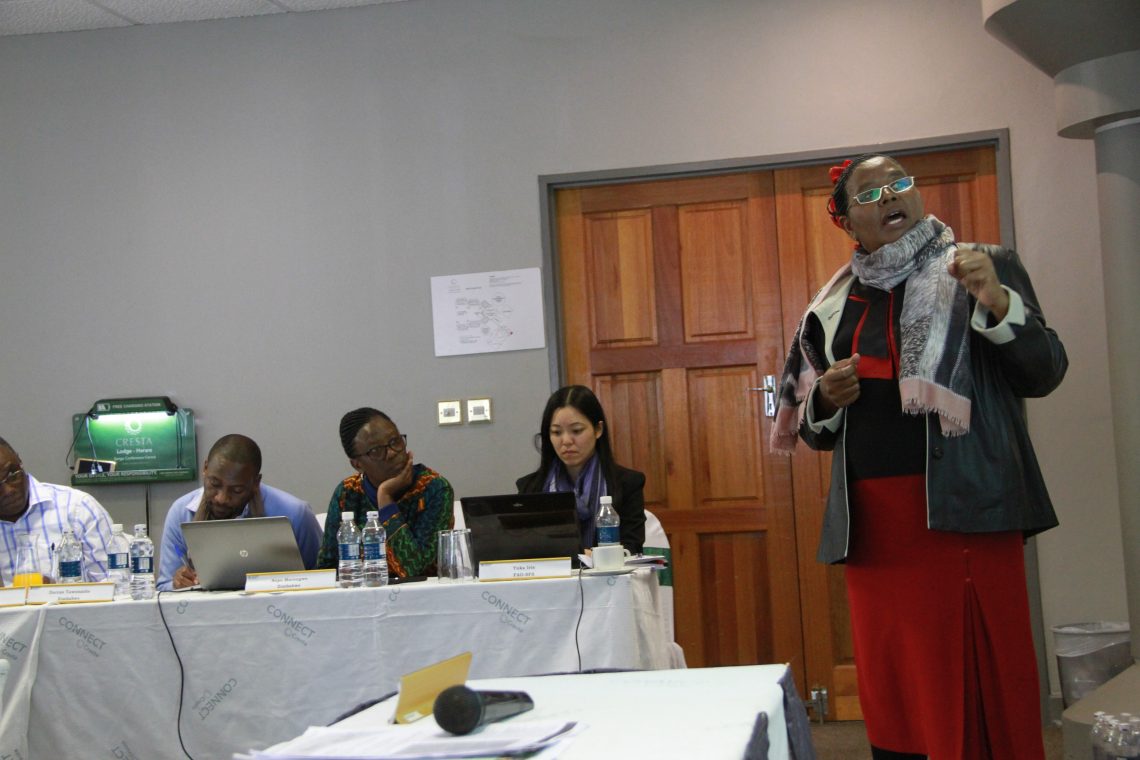There should be a deliberate move to avoid Green House Gas emission-intensive investments through economically viable low-emission development options, a senior Food and Agriculture Organisation (FAO) official has said.
Gabriele Ranieri, the Officer in Charge of the FAO Subregional Office for Southern Africa made the remarks at the Sustainable Land Management and Climate-Smart Agro-ecology in Agricultural Policies and Value Chains in West and Southern Africa Training Workshop held at the Cresta Lodge in Harare.
“The synergetic achievement of food security, economic development and climate change mitigation targets is a high level policy goal within the UN Sustainable Development Goals and the Paris Agreement within the UNFCCC. Consequently then, avoiding Green House Gas emission-intensive investments through economically viable low-emission development options is an essential requirement in achieving these policy goals.
“Agriculture, Forestry and Other Land Use (AFOLU) are major sources of greenhouse gases (GHG), contributing 24 percent of global emissions. At the same time, the climate change mitigation potential for the sector is high and many technical options are readily available for immediate deployment. Since 74 percent of the mitigation potential of agriculture is in developing countries, many AFOLU development projects can play an important role in climate change mitigation, either by reducing emissions and/or by sequestrating carbon. Mitigation options can also contribute to increased food security and reduce rural poverty,” Ranieri said.
The Sustainable Land Management and Climate-Smart Agriculture in Policies and Value Chains in West and Southern Africa Training Workshop is a three days event which will introduce farming experts to different tools based on the EX-ANTE carbon balance tool, known as EXACT.
The different tools that derive from EXACT, such as value chain tool help policy designers and investment planners to estimate and prioritise activities with economic and climate change mitigation benefits in synergy with all the project development objectives.
Integrating climate change and development goals have been key strategies and for the past years, many initiatives and projects have been targeting the development of CSA, Sustainable Land Management and Agroecology practices in the Southern Africa Subregion as well as Regionally.
FAO has been providing technical and policy assistance to countries to establish climate-smart agricultural systems. In Southern Africa promotion of Conservation Agriculture (CA) has particularly characterised the main approach to addressing the challenges of Climate Change. The three principles of CA (minimum soil disturbance, maintenance of soil cover and multiple cropping associations) are among some of the most effective CSA interventions.
There are several programmes in the sub-region addressing more sustainable cropping, livestock, forestry and fisheries management systems linking the need for increased agricultural production with environmental concerns as well as climate change adaptation and mitigation.
The Global EPIC programme by FAO that included Zambia as a focus country was meant to provide support for policy, institutional, strategic and investment frameworks to promote sustainable agricultural development and food security under climate change. Holistic and context-specific approaches to food security, adaptation, mitigation to understand synergies/trade-offs and barriers to adoption of CSA practices.
The Africa Climate Smart Agriculture Alliance (ACSAA) is also worth mentioning as a key intervention for support to CSA policy related interventions that includes a number of countries in Southern Africa. The ACSAA is a unique and innovative partnership led by the NEPAD Agency and five International NGOs (CRS, Concern, CARE, WV, Oxfam) with technical support by FAO, FARA, CCAFS and FANRPAN.
